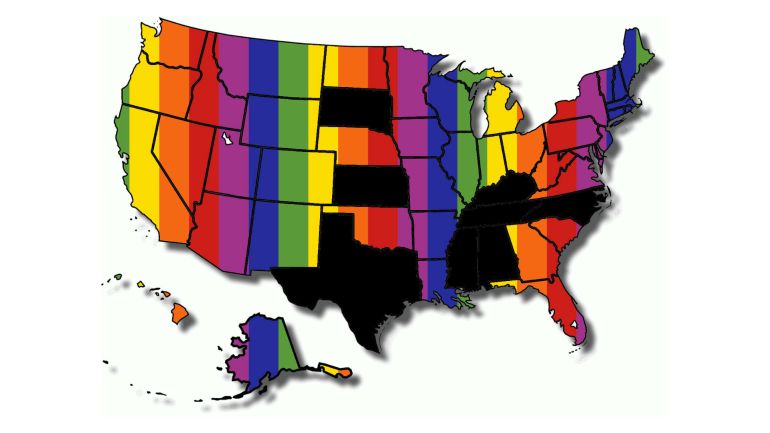 When California deems other states’ laws as discriminatory, what do they do? They pass discriminatory laws to fight these discriminatory laws.
When California deems other states’ laws as discriminatory, what do they do? They pass discriminatory laws to fight these discriminatory laws.
“Our country has made great strides in dismantling prejudicial laws that have deprived too many of our fellow Americans of their precious rights,” trumpets California Attorney General Xavier Becerra.
So in the spirit of prejudicial law dismantling, California has assembled a prejudicial law (AB 1887) that restricts state-funded travel to Tennessee, North Carolina, Mississippi, Kansas, Alabama, Kentucky, South Dakota and Texas.
“While the California DOJ works to protect the rights of all our people, discriminatory laws in any part of our country send all of us several steps back,” says Becerra. “That’s why when California said we would not tolerate discrimination against LGBTQ members of our community, we meant it.”
Zero tolerance of intolerance
It seems that California lawmaker considers any community in any state as their community and will not tolerate discrimination against any LGBTQ member in any community…because they’re part of California’s (global) LGBTQ community, you see. Wait…what?
We are the world. Or at least the nation. Or maybe just the state.
Which discriminatory laws of other states prompted heroic measures like AB 1887? Here’s one:
Mississippi’s “Protecting Freedom of Conscience from Government Discrimination Act” (House Bill 1523) prohibits the state from discriminating against churches and businesses that believe marriage should be between one man and one woman and who decline to provide services to facilitate same sex marriages because doing so would violate “a sincerely held religious belief or moral conviction.”
Here’s another:
South Dakota’s Senate Bill 149 shields faith-based and private child placement agencies from state-sponsored discriminatory measures. This means that if these agencies refuse to provide any service, including adoption or foster care services, on the basis of their religious convictions, the state will not retaliate against them.
So rather than “opening the door to discrimination” as opponents claim, the bills actually close the door on state-sponsored discrimination against the free exercise of religion—in theses cases—the violation of religious entities sincerely held beliefs.
Chucking the discriminatory First Amendment
State retaliation against religious entities, which violates the First Amendment separation of church and state, is an unconstitutional practice California champions and demands that other states employ…or…dun dun DUN! They’ll wield the incredibly intimidating travel ban.
It seems that Texas and the other pariah states are shaking in their boots. Here’s a response from the Texas Governor’s office: “California may be able to stop their state employees, but they can’t stop all the businesses that are fleeing over taxation and regulation and relocating to Texas.”
Snark attacks and giggles aside, the crux of this debate is this:
California considers faith-based entities sincerely held beliefs concerning gender, marriage and sexuality backward and discriminatory. They will not tolerate discrimination in any form, but don’t seem to realize that using state power to discriminate against entities they deem discriminatory is a form of discrimination. And so is their silly travel ban.
Or worse—they know very well that they’re doing the very thing they decry, but justify it based on their sincerely held beliefs. Beliefs that run counter to theirs “send all of us several steps back,” as California Attorney General Xavier Becerra so sanctimoniously pronounced.
According to Becerra, California will not tolerate people being “deprived” of their “precious” rights—except those people whom California seeks to deprive of their constitutional religious liberty rights.
Dear Governor Brown and California lawmakers,
If your voters allow you to abuse the power of your state to discriminate against citizens and private businesses, that’s their failure. Why would you expect other states to believe as you do and jettison the constitutional separation of church and state? Do you truly believe that your beliefs about gender, marriage and sexuality trump others’ beliefs?
A travel ban? Really? AB 1887 makes you look arrogant, small-minded and silly. Sorry, but your bill is as impotent as it is self-important.
Here’s a time-tested truth: Your sincerely held beliefs about marriage and gender are the product of a relatively recent zeitgeist and are shared by a minority. Notwithstanding, the Constitution protects your right to hold them.
Vast majorities in societies worldwide for centuries have embraced sincerely held beliefs regarding marriage and gender. Don’t they deserve the same protection?
